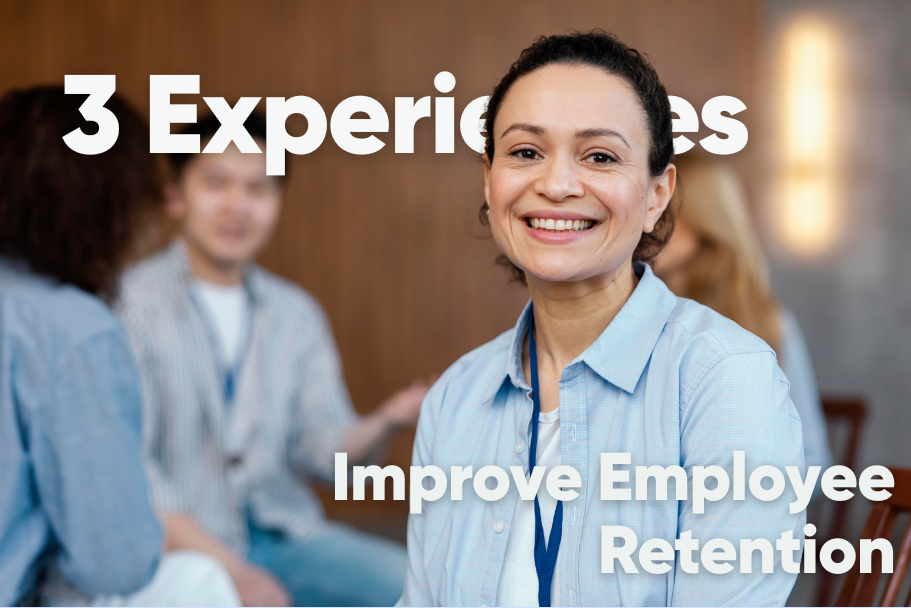
Company Culture, Employee well-being, Employee Trust
Key Takeaways:
- Gen Z and Millennials expect open communication and ethical leadership, making trust and transparency essential workplace standards.
- Flexibility is viewed as a prerequisite, with sustainable schedules and respect for well-being seen as markers of a healthy culture.
- Continuous development opportunities and a genuine sense of belonging strongly influence loyalty and long-term retention.
- Purpose and fairness shape how younger employees connect with their work, linking meaning and equity to overall engagement.
As generational shifts continue to reshape the workforce, the perspectives of younger employees are becoming increasingly influential. Millennials now make up the largest segment of working adults, and Gen Z is quickly joining them. Their expectations around work differ in meaningful ways from previous generations—not just in what they want, but in what they consider non-negotiable.
Understanding what drives Gen Z and Millennial employees isn’t about chasing trends; it’s about staying relevant in a changing labour market. For employers, aligning with these expectations can help build workplaces where people want to stay—and contribute their best.
A Shift in Priorities: Beyond Salary and Stability
While compensation remains important, Gen Z and Millennials tend to evaluate job opportunities through a broader lens. Stability and pay matter, but so do values, transparency, and purpose.
Employees from these generations are asking:
- Does this company align with my values?
- Will I have a say in decisions that affect my work?
- Will I be able to grow professionally—and personally?
These questions reflect a desire for workplaces that treat employees as people first, not just workers filling roles.
Trust and Transparency Matter More Than Ever
Growing up in an age of digital information—and misinformation—has shaped how younger workers view leadership. They expect transparency and straightforward communication, especially from senior leaders. When decisions are made behind closed doors or when changes are poorly explained, trust erodes quickly.
Open dialogue, regular feedback, and honest leadership communication are no longer optional. They are baseline expectations for younger employees deciding whether to stay or go.
In fact, employees at high-trust companies experience significant benefits, including 74% less stress and 50% higher productivity compared to those in low-trust environments (Forbes, 2023). These are not just quality-of-life improvements—they point to a measurable difference in how engaged and effective people are at work.
This expectation is particularly strong among younger staff. According to Great Place To Work®'s article, Best Workplaces for Today's Youth, 94% of young employees at top workplaces say their managers act ethically and communicate with transparency—highlighting just how essential trustworthy leadership has become.
Flexibility Is Not Just a Perk
For both Gen Z and Millennials, flexibility is not a bonus—it’s a prerequisite. The ability to manage work schedules, choose remote or hybrid options, and take time off without guilt is often seen as a sign of whether a company genuinely respects its people.
Flexibility also ties into broader concerns about well-being. Long hours and rigid schedules are viewed as outdated. Instead, workers want to see companies support sustainable ways of working that prioritize mental and emotional health.
Development and Growth Are Expected, Not Earned
Unlike previous generations, younger employees don’t believe you should wait five years to get development opportunities. They look for employers who are proactive about helping them learn new skills, take on meaningful responsibilities, and shape their career paths early on.
Providing structured growth options—including mentoring, internal mobility, and learning programs—signals to Gen Z and Millennials that their futures matter. Without these opportunities, retention can become a challenge.
Belonging Over "Fitting In"
A sense of belonging is a recurring theme in what Gen Z and Millennials want from work. This goes beyond diversity targets or inclusion statements. It’s about whether they feel seen, respected, and valued in everyday interactions.
Language, representation, accessibility, and fairness all influence whether employees feel they belong. So do leadership behaviours and peer relationships. A workplace where people feel like they have to “mask” or minimize aspects of themselves won’t earn loyalty—especially not from younger staff.
Feedback Isn’t a Formality
Regular check-ins, feedback loops, and two-way conversations are expected. These generations don’t want to wait until an annual review to know how they’re doing. They also expect to be heard when they share ideas or raise concerns.
Feedback is a signal of respect. When employees are listened to and their input acted on, it builds a sense of agency and connection. When feedback is one-sided or ignored, it signals hierarchy and disinterest.
Technology Should Enhance, Not Hinder
Digital natives are used to seamless, intuitive platforms in their personal lives. When work systems feel clunky, disjointed, or outdated, frustration builds quickly. It’s not about novelty—it’s about efficiency and usability.
Employees expect to engage with technology that supports their work, rather than creating barriers. They’re also more open to using digital tools for connection, recognition, and learning—if those tools are well-implemented.
Purpose Is Personal
Many Gen Z and Millennial workers are motivated by mission as much as margin. They want to work for organizations that have a point of view on social and environmental issues. But more importantly, they want their daily work to feel meaningful.
Companies that connect business goals with a larger purpose—not through marketing, but through action—tend to resonate more strongly with younger employees. When people see how their role contributes to something larger, engagement grows naturally.
The absence of meaning, however, carries consequences. The Power of Purpose in the Workplace Report from Great Place To Work® found that only 77% of Gen Z and 81% of Millennials intend to stay long term at their jobs when they don’t feel a sense of purpose. In contrast, when work feels meaningful, younger employees are nearly three times more likely to remain committed and twice as likely to recommend the company to others.
This emotional connection to work also translates into day-to-day enthusiasm. At top-ranked workplaces in Canada, 88% of employees say they genuinely look forward to coming to work, compared to just 52% at a typical Canadian workplace (Great Place To Work® 2021 Global Employee Engagement Study). That gap speaks volumes about what purpose and engagement look like in practice.
Shared Success Builds Loyalty
Younger employees are not just looking for meaning—they’re also paying attention to fairness. Feeling fairly rewarded for their contributions plays a key role in how loyal they feel to their employer.
Data shows that at the top certified workplaces in Canada, 71% of employees feel they receive a fair share of the profits made by the organization. On the other hand, at a typical Canadian workplace, that number drops to 35% (Great Place To Work® 2021 Global Employee Engagement Study). This nearly twofold gap reinforces the importance of transparency, shared success, and equitable compensation practices.
What This Means for Employers
Meeting these expectations doesn’t require grand gestures. It requires consistency, accountability, and a willingness to evolve. A few practical starting points include:
- Conducting a credible employee survey to understand where trust stands today
- Re-evaluating flexibility policies and leadership communication practices
- Reviewing career development pathways and whether they are truly accessible
- Auditing workplace practices for inclusion—not just representation
- Measuring employee well-being through real data, not assumptions
When workplaces align with what younger generations care about, it’s not just good for morale—it’s good for business. Retention improves. Productivity rises. And organizations build a reputation that attracts future talent without having to outspend the competition.
Final Thoughts
Gen Z and Millennials are not asking for special treatment. They’re asking for workplaces that make sense in today’s world. One where trust is earned, voice is valued, and work feels meaningful. For organizations willing to listen and act, the path forward is clear—and within reach.
Tools & Resources
- Trust Index™ Employee Feedback Survey: Quantifies employee experience with data-driven insights across key culture dimensions. Ideal for identifying where Gen Z and Millennials feel most engaged—or disconnected.
- Employee Engagement: Helps organizations understand and act on the emotional and psychological connection employees have with their work. Critical for retention of purpose-driven younger workers.
- Leadership Development: Supports the development of ethical, transparent leadership. Directly aligns with younger generations’ expectations for honesty, respect, and fair treatment.
- Employee Well-being: Provides data on emotional, financial, and social well-being. Useful for creating sustainable work environments that younger employees view as essential, not extra.
Feedback
We value your feedback! Your insights are crucial to helping us create meaningful content. Did the strategies in this article inspire new ways to meet the expectations of Gen Z and Millennial employees in your organization? Are there specific challenges you'd like us to address? Share your suggestions or ideas with us. Together, we can develop resources that truly make a difference. Have feedback? Fill out this form by clicking here.
Get Certified
Want to know how your people feel about their sense of purpose, trust in leadership, and overall engagement? Get Certified today and learn the answer to this question and gain many more insights along the way.






